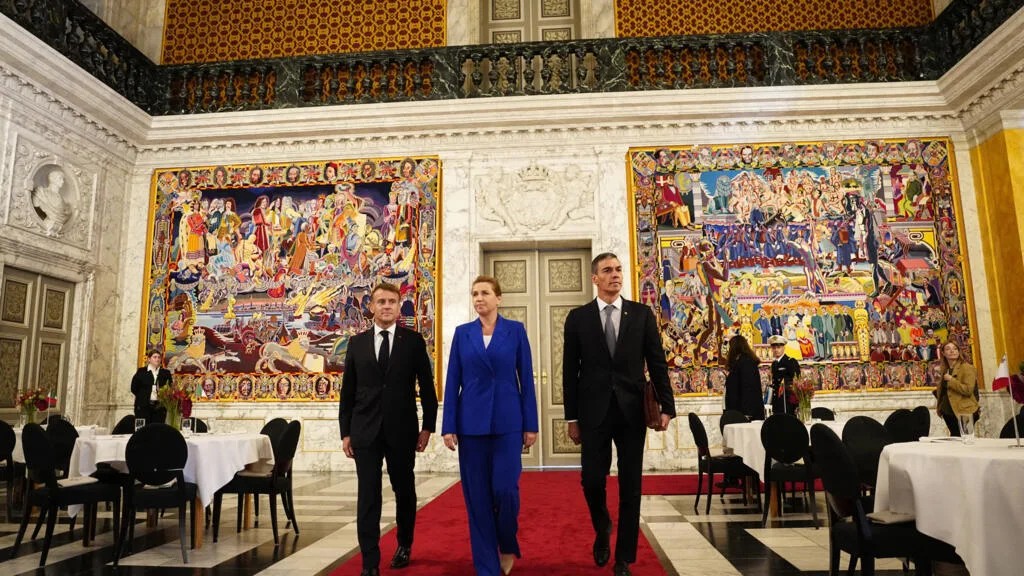By Eniola Amadu
EU leaders are gathering in Copenhagen this week amid mounting pressure to strengthen European defence, following a series of Russian airspace incursions and recent drone disruptions at Danish airports.
Danish Prime Minister Mette Frederiksen warned that Russia posed the only direct threat to Europe and urged a “very strong answer back.”
The security challenge is particularly acute for eastern members such as Poland and Estonia, which have faced repeated violations of their skies.
READ ALSO: Trump announces sweeping tariffs on pharmaceuticals, truck, furniture imports
Several states support plans for a multi-layered “drone wall” to detect, track and neutralise Russian drones.
Denmark has tightened security around the summit, grounding all civilian drones until Friday and restricting traffic in Copenhagen.
A German frigate has docked in the capital, while allies including Poland, the UK, Finland, Sweden and the US are providing surveillance and anti-drone support.
Though Danish police say they have found no proof of Russian involvement in last week’s drone activity, Frederiksen linked it to broader hybrid tactics by Moscow, including incursions over Poland.
NATO has already held two emergency consultations this month after drones entered Polish airspace and Russian MiG-31 jets briefly crossed into Estonia.
German Chancellor Friedrich Merz said Europe was “no longer at peace” and must do far more for its own security, adding it was “reasonable to assume” the drones originated from Russia.
European Commission chief Ursula von der Leyen has pushed the “drone wall” idea and unveiled wider plans for an Eastern Flank Watch initiative to fortify borders by air, sea and land.
Leaders will also be shown a 2030 defence “road map” focused on joint procurement and a proposed €150bn fund to boost Europe’s defence industry.
The Copenhagen meetings are taking place alongside a broader European Political Community summit, with Ukraine’s President Volodymyr Zelensky expected to join military coordination talks.
READ ALSO: EU, US step up sanctions talks as Trump signals tougher measures on Russia
However, divisions remain, with Hungary’s Viktor Orban openly questioning Ukraine’s sovereignty and opposing its EU membership bid.
Frederiksen said the moment marked Europe’s most dangerous security environment since the Second World War.



